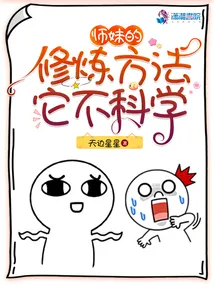Struggle in Soviet Russia - Chapter 650
To discuss the relationship between oil and the dollar, we must first understand two concepts, one is the Organization of the Petroleum Exporting Countries, which is the so-called “OPEC”, and the other is the so-called “oil crisis” in the 1970s.
In Victor’s previous life, by the end of the 1960s, the “Bretton Woods System” established by the Americans could no longer be maintained. On the one hand, because the United States is deeply trapped in the Vietnam battlefield, the fiscal deficit caused by the economy continues to expand. On the other hand, the rise of the Japanese and West German economies has imported a large amount of commodities into the United States and swept a large amount of gold from the United States every year.
The continuous outflow of gold hit the foundation of the “Bretton Woods System”. At that time, the whole world believed that the prosperity of the United States was no longer sustainable, and the Cold War would end with the victory of the Soviet Union… Don’t forget, In the late 1960s and early 1970s, when the Soviet Union was at its peak, its economic strength was rapidly approaching the United States, which had a direct impact on the hegemony of the United States. In the United States at the time, there were even signs that isolationism was gaining the upper hand again.
In this way, in the Nixon period, in order to curb the continuous outflow of gold reserves, the US government had to abandon the policy of directly linking the US dollar to gold and officially announced its withdrawal from the Bretton Woods system, which also led to the entire Bretton Woods system. collapse.
The United States officially withdrew from the “Bretton Woods System” in 1971, and just two years later, in 1973, the fourth Middle East war broke out. Egypt joined Syria to attack Israel, trying to retake the latter The Golan Heights and the Sinai Peninsula occupied by the invaders, while Israel, supported by the Americans, was not afraid and simply defeated the Arab coalition.
At that time, the Soviet Union’s Middle East policy had changed. Moscow stood on the side of the Arabs, supporting not only Egypt but also Syria, while the Americans were still the most staunch supporters behind Israel.
In the end, the fourth Middle East war still ended with the defeat of the Arabs. The most terrible thing is that it was this war that made the Arab world see the reality and know that it is impossible to defeat Israel by relying solely on its own strength. Therefore, Soon after, Egypt recognized Israel’s legitimacy, becoming the first country in the Arab world to do so.
This war caused huge shocks in the entire Arab world. The most direct consequence was that the American policy aroused the dissatisfaction of the Organization of Petroleum Exporting Countries, mainly in the Arab world. After the outbreak of the war, in order to combat the support behind Israel Those who are Americans, the Organization of the Petroleum Exporting Countries first announced the withdrawal of the right to price oil, and then raised the price of crude oil from more than 3 points per barrel to more than 10 points per barrel, which more than tripled.
The increase in crude oil prices this time has dealt a heavy blow to the world economy in a very short period of time. The domestic economy of the United States can be described as worse. There is even a scene of vehicles queuing outside the gas station for 24 hours to refuel. In just a few months, U.S. industrial production plummeted by more than 10 percent, while Japan was hit harder.
Of course, as the same oil-exporting country, the Soviet Union has benefited a lot from this oil crisis, which is one of the many reasons for the change in the balance of power between the United States and the Soviet Union.
It was this oil crisis that made Americans see the importance of energy. An Egyptian-American named Ibrahim Orvis first proposed the concept of a “petrodollar”, and then extended it to The circular concept of “dollar-oil-dollar-denominated financial assets”.
In fact, “petrodollars” actually refer to a cyclical process. Oil-producing countries produce oil, export it, and exchange it for dollars. After they get dollars, they can’t put the money in the bank. They have to spend the money, so they take the dollars. Buy U.S. bonds, or invest in the U.S. and countries that are willing to accept U.S. dollars. When Americans get those dollars back, they will go to oil-producing countries to buy oil again. In this way, oil becomes dollars, dollars become U.S. bonds, and U.S. bonds become oil, and the cycle is born.
In the process, by tying oil to the dollar, Washington gained three strategic financial tools: First, as long as the importance of energy remains, by tying the dollar to oil, Americans can Manipulate the production and circulation of oil through domestic monetary policy, and achieve the purpose of controlling the world economy; second, because the dollar is bound to oil, the dollar, a currency issued by the US government, has become a global currency with Oil is generally the same “hard currency”. As long as countries around the world are still using oil, they must accept the reality that the US dollar is a “general equivalent”; third, because the US dollar is bound to oil, the US dollar has become a kind of “General equivalents”, then no matter whether the US government adopts monetary easing policy or tightens interest rate hikes, all countries in the world have to suffer, and everyone has become a leek that Americans can harvest at will, and it is a crop Another tea, never to get rid of.
Therefore, as a rebirth, Victor is very clear that the confrontation between the alliance and the United States is actually very unfair, because once the “petrodollar” cycle is established, it means that the whole world is on the side of the United States, and the alliance’s What the economy has to contend with is not just the United States, but the entire international force that is connected through the rigid demand for oil. From this point of view, in the US-Soviet hegemony, it is normal for the Americans to win, and it is not for them to lose. It’s normal.
It is precisely because of this that Victor attaches great importance to the problems of the Middle East, and at the same time, he attaches great importance to the problems of Saudi Arabia.
Why? The reason is simple, because Saudi Arabia’s oil reserves account for one-third of the entire Organization of the Petroleum Exporting Countries.
In Victor’s previous life, in 1974, the newly appointed U.S. Treasury Secretary, William Simon, went to Saudi Arabia, conducted secret negotiations with the Saudi royal family, and finally signed an agreement. Since then, Saudi Arabia’s oil exports will be The U.S. dollar is settled, and the oil proceeds are used to purchase U.S. Treasury bonds in exchange for U.S. support in military, economic, political and other aspects.
It is also because of Saudi Arabia’s provocation that almost most of the countries in the entire Organization of the Petroleum Exporting Countries have signed similar agreements with the Americans, thus quickly establishing the “Petrodollar” system.
It is also because of this agreement between the United States and Saudi Arabia that in the following decades, Americans have been effectively protecting the interests of the Saudi royal family in the Middle East, even if the dictatorship of the Saudi royal family is well known to the world, with the world police America, which is self-proclaimed, has never seen anything.
When it comes to governance experience, within the alliance, especially in the core of power in Moscow today, Victor can only be regarded as the least experienced and least ranked. After all, he is too young and has not been exposed to enough government affairs. But then again, because of the memory of his previous life, his foresight is unmatched by any bureaucrats within the alliance. To be honest, even the harm caused by the Bretton Woods system to the alliance, most bureaucrats in the alliance today are not aware of it. At this point, they only feel that international trade is now easy to do, and it is easier for the alliance to import anything, after all, as long as there is enough gold.
In the same situation, there is no specific understanding of the importance of the alliance to the Middle East. To be honest, the focus of Moscow’s most attention on North Africa and the Middle East is the Mediterranean Sea and the waterway of the Suez Canal. The alliance looks at the geopolitical issues in the Middle East, and more importantly, considers the international shipping lanes. As for the oil issue, it has not been brought into the attention of the alliance at all.
As a traveler, Victor sees the problem. Therefore, his attention to Saudi Arabia is very high. In his opinion, the alliance would rather give up its interests in the Korean peninsula than sit back and watch the Americans. To gain a firm foothold in the Middle East, at least not allow them to gain a firm foothold in Saudi Arabia. Riyadh may not have a stance toward the Moscow royal family, but there must not be a king who is completely in favor of Washington. If there is, then kill him, even if For this, a direct conflict broke out with the Americans.
When it comes to the issue of shipping lanes, Victor believes that Egypt should be added to the Middle East countries that the Ministry of Foreign Affairs needs to pay attention to. It must be emphasized that in today’s Egypt, the rule of the Farouk Dynasty has actually reached a shaky level, and the well-known “Freedom Officers Organization” of later generations has already begun to carry out large-scale activities in Egypt. In addition, demonstrations and violent conflicts against British colonial rule in Egypt have also occurred frequently in recent times, constantly impacting the status of the Farouk Dynasty and the stability of British colonial rule.
In Viktor’s previous life, in a few years, the coup led by Nasser would overthrow the Farouk Dynasty and formally declare Egypt’s independence, followed by its nationalization of the Suez Canal, which would trigger the second The outbreak of the Middle East War, and this process, or this period, is undoubtedly the best time for the Alliance to expand its influence in Egypt.
It must be admitted that in a series of countries that gained independent status after World War II, most of the governments in power have a favorable impression of the Soviet Union, which is undoubtedly very beneficial to the alliance. The key point is that the alliance How to formulate foreign policy in the next few years.
To tell the truth, Victor can’t wait a little bit now. He thinks that he should have a greater voice and decision-making power in the core power layer of the alliance, because… because he thinks he The ability to see farther and make more correct choices.














